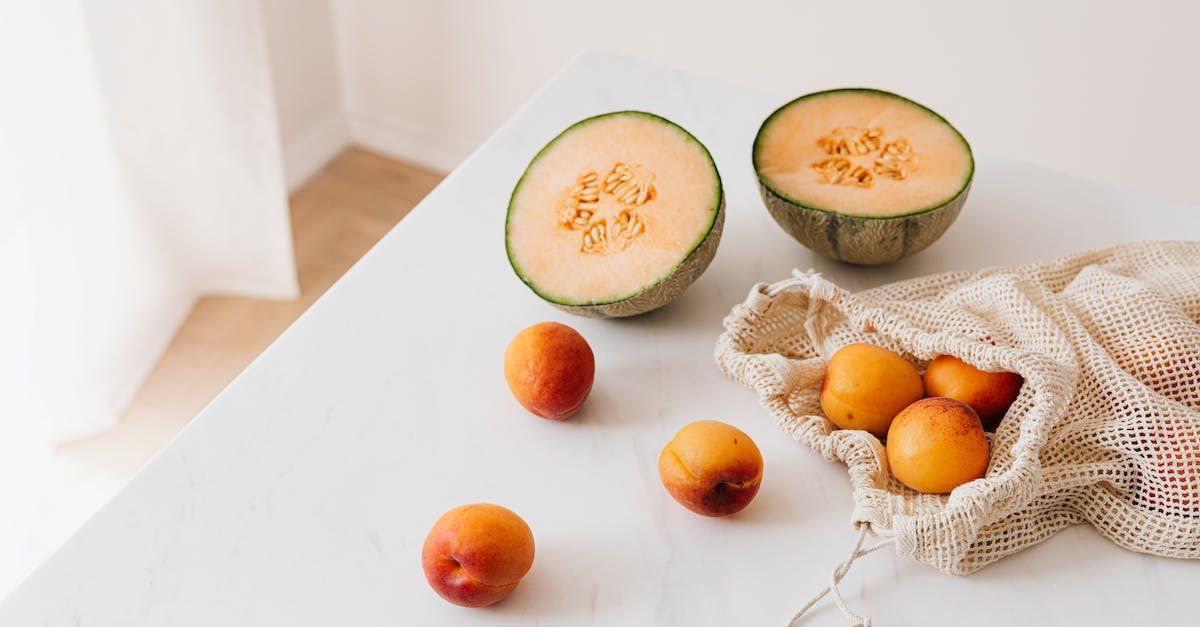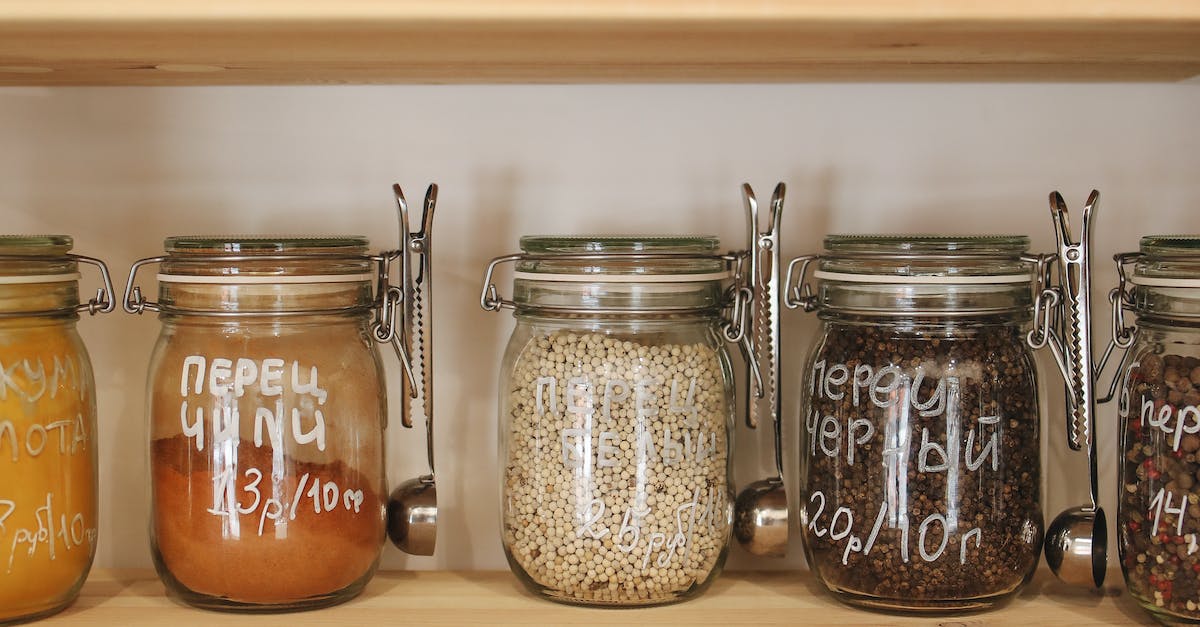Hey there, fellow earth lovers! Are you ready to take your cooking game to the next level? Not only will our 10 tips make your food even more delish they will also help you reduce waste and have a positive impact on the planet! So, let’s get started with our ultimate guide to cooking without creating waste!
- Tip #1: Plan ahead! By planning your weekly meals and creating a grocery list, you minimize the risk of overbuying food and letting it go to waste!
- Tip #2: Keep your kitchen clean and organized! Not only will you save time and stress, but also you will be able to see all the ingredients that you have, so no more buying more of what you already have!
- Tip #3: Use your scraps for stock! Throw in all the leftover veggies and bones, simmer them and you will have a delicious broth that can be used for soups and stews.
Stay tuned for the rest of our tips, and get ready to become the eco-hero of your neighborhood! Let’s cook without waste and make a difference!
Plan your meals

One of the simplest and most effective ways to reduce waste in the kitchen is to plan your meals ahead of time. This means creating a weekly meal plan, shopping for the ingredients you need, and sticking to your plan. By planning your meals, you can avoid buying unnecessary items and reduce the likelihood of food going bad before you have the chance to use it. Plus, it helps save time and money!
To make meal planning even more eco-friendly, consider incorporating seasonal and local ingredients. This not only supports local farmers but also reduces the environmental impact of transportation and storage. And don’t forget to make use of leftovers – plan to use them in meals later in the week or freeze them for future use. Planning your meals may take a little extra effort, but it’s well worth it in the long run for a more sustainable kitchen.
Shop smartly

- Shop at the farmers market or grocery store with reusable bags: Bringing your own bags to the store eliminates the need for plastic bags and helps reduce waste. Plus, it looks super stylish to be carrying your own reusable bags!
- Buy in bulk to reduce packaging waste: Look for stores that offer a bulk section and bring your own containers to fill up on dry goods like rice, beans, and pasta. This not only cuts down on packaging waste, but can also save you money in the long run.
- Choose products with minimal packaging: When possible, opt for products that come in minimal or compostable packaging to reduce waste. For example, choosing loose produce instead of pre-packaged fruits and vegetables can make a big difference.
- Plan your meals and shop accordingly: Reducing food waste starts with planning your meals and only buying what you need. Make a list before you go to the store and stick to it to avoid buying unnecessary items that may go to waste. Plus, meal planning can help save time and money in the long run!
- Shop for seasonal produce: Not only does buying in-season produce typically taste better and have more nutrients, but it can also reduce your carbon footprint. When you buy produce out of season, it often has to travel long distances and requires more resources to grow and transport.
- Choose products with minimal or no palm oil: Palm oil is a major contributor to deforestation and habitat destruction. Look for products with minimal or no palm oil to reduce your impact on the environment.
- Bring your own containers for meat and deli items: If you eat meat or deli items, bring your own reusable containers to avoid the need for plastic packaging. Some stores even offer discounts when you bring your own containers!
- Choose items with a long shelf-life: Opt for items that have a longer shelf-life, like dried grains or canned goods, which will reduce the amount of food waste in your home.
- Choose glass or metal packaging over plastic: When possible, choose products that come in glass or metal packaging instead of plastic. These materials are easier to recycle and are less likely to end up in landfills.
- Choose locally produced foods: Buying locally produced foods not only supports local farmers, but also reduces the carbon footprint associated with food transportation. Look for options at your local farmers market or specialty stores.
Choose reusable containers and bags

When it comes to cooking without creating waste, choosing reusable containers and bags is a great way to reduce your environmental impact. Here are some tips and benefits of using reusable containers and bags:
- Use glass containers: Using glass containers are a great alternative to plastic. Not only are they more durable, but they don’t contain any harmful chemicals which can leach into your food or harm the environment.
- Bring your own reusable bags: Bringing your own bags, whether for grocery shopping or carrying your lunch, can greatly reduce the amount of single-use plastic bags that end up in landfills and oceans. Plus, many stores offer discounts for bringing your own bags!
- Invest in sturdy containers: Instead of using flimsy plastic bags or cling wrap to store your leftovers, invest in sturdy containers that can be reused over and over again. They will keep your food fresher for longer and prevent unnecessary waste.
By choosing reusable containers and bags, you can be sure that you are doing your part to reduce waste and protect the environment. Plus, you’ll be saving money in the long run by not constantly having to purchase disposable items.
Use all parts of the ingredients

When cooking, it’s important to make use of every part of the ingredients you’re using, whether it’s vegetable scraps or meat bones. This not only reduces waste but also adds extra flavor and nutrition to your meals. Here are some tips:
- Save vegetable scraps: Instead of throwing away the scraps from vegetables like onions, carrots, and celery, save them in a ziplock bag in the freezer to use later for making homemade broth or stock.
- Use the whole fruit or vegetable: Instead of peeling fruits and vegetables, try to use the whole thing. For example, leave the skins on potatoes for added fiber, or use the stems and leaves of herbs like parsley or cilantro in your cooking.
- Make broth from meat bones: Don’t throw away those bones after you’ve finished eating! Save them to make homemade broth or stock, which can be used as a base for soups, stews, and sauces.
- Repurpose leftovers: If you have leftover vegetables or meat from a meal, don’t let them go to waste. Use them to make a stir-fry, soup, or frittata the next day.
By using all parts of your ingredients, you can reduce waste, save money, and add extra nutrition and flavor to your meals. So get creative and start using every part of your food!
-

Fashionably Green and On-The-Go
£16.50 Select options This product has multiple variants. The options may be chosen on the product page -

Reusable and Ready Eco-Friendly Tote Bag
£16.50 Add to cart
Compost kitchen scraps and food waste

- Composting: Food Waste can be used as a rich soil supplement for plants. That’s right, instead of throwing those scraps away, a compost bin can recycle them into a nutrient-rich soil for houseplants, gardens or landscaping.
- Start Small: Don’t be intimidated. Even if you live in a tiny apartment, you can still compost. There are small composting systems (such as a worm bin) that can be kept in a closet or under a sink. By growing your own organic fruits and veggies, you are reducing packaging waste, transport, and energy usage of conventional produce.
- What to Compost: Most fruit and vegetable scraps, fruit pits, eggshells, coffee grounds, tea bags, and grass cuttings can all be composted. Be sure to leave out any animal products, such as meat, dairy, and fats, as these will attract pests and can generate harmful odors.
- Odor Control: A common concern with composting is the offensive odor. Using a brown and green layering technique in your compost bin can help limit odors. Adding dry leaves or newspaper to the mix will help balance the moisture levels and keep nasty smells to a minimum.
- Good for the Planet: When we compost, we help reduce methane emissions from landfills, which has a significant environmental impact. Additionally, adding to soil health through composting directly impacts the carbon cycle, and increases the earth’s ability to sequester carbon, making your small contribution towards a healthier planet.
Incorporate meatless meals into your diet

- Less carbon footprint: Incorporating meatless meals into your diet can significantly reduce your carbon footprint, as livestock farming generates a large amount of greenhouse gases.
- Lower cholesterol and blood pressure: Eating less meat and more plant-based proteins can lower cholesterol and blood pressure, reducing the risk of heart disease.
- Improves digestion: Plant-based meals are higher in fiber and can improve digestion and prevent constipation.
- Saves money: Meat can be expensive, so incorporating more affordable plant-based meals can save money on grocery bills.
- Boosts creativity in the kitchen: Cooking meatless meals exposes you to new ingredients and cooking techniques, allowing you to get creative in the kitchen.
- Reduces animal cruelty: By reducing your meat consumption, you’re helping to reduce animal cruelty and the demand for factory farming.
Conclusion
Well, there you have it, folks – tips for cooking without creating waste! We hope you found these tips helpful and inspiring, and that they encourage you to take even more steps towards living a sustainable and eco-friendly lifestyle.
Remember, cooking without waste doesn’t have to be something that you do just because it’s trendy, or because you want to impress your friends on Instagram. It’s something that we should all strive to do in our daily lives because it’s simply the right thing to do.
By taking the time to plan your meals, shopping mindfully, using your leftovers, and composting or recycling your food waste, you can drastically reduce the amount of waste you generate in your kitchen. And don’t forget to get creative in the kitchen – some of the best meals are born out of necessity, and using up whatever ingredients you have on hand.
In the end, an eco-friendly kitchen isn’t just about saving the planet – it’s about saving money, eating healthier, and living a happier, more fulfilling life. So go forth and cook without waste, and enjoy all the benefits that come along with it!

